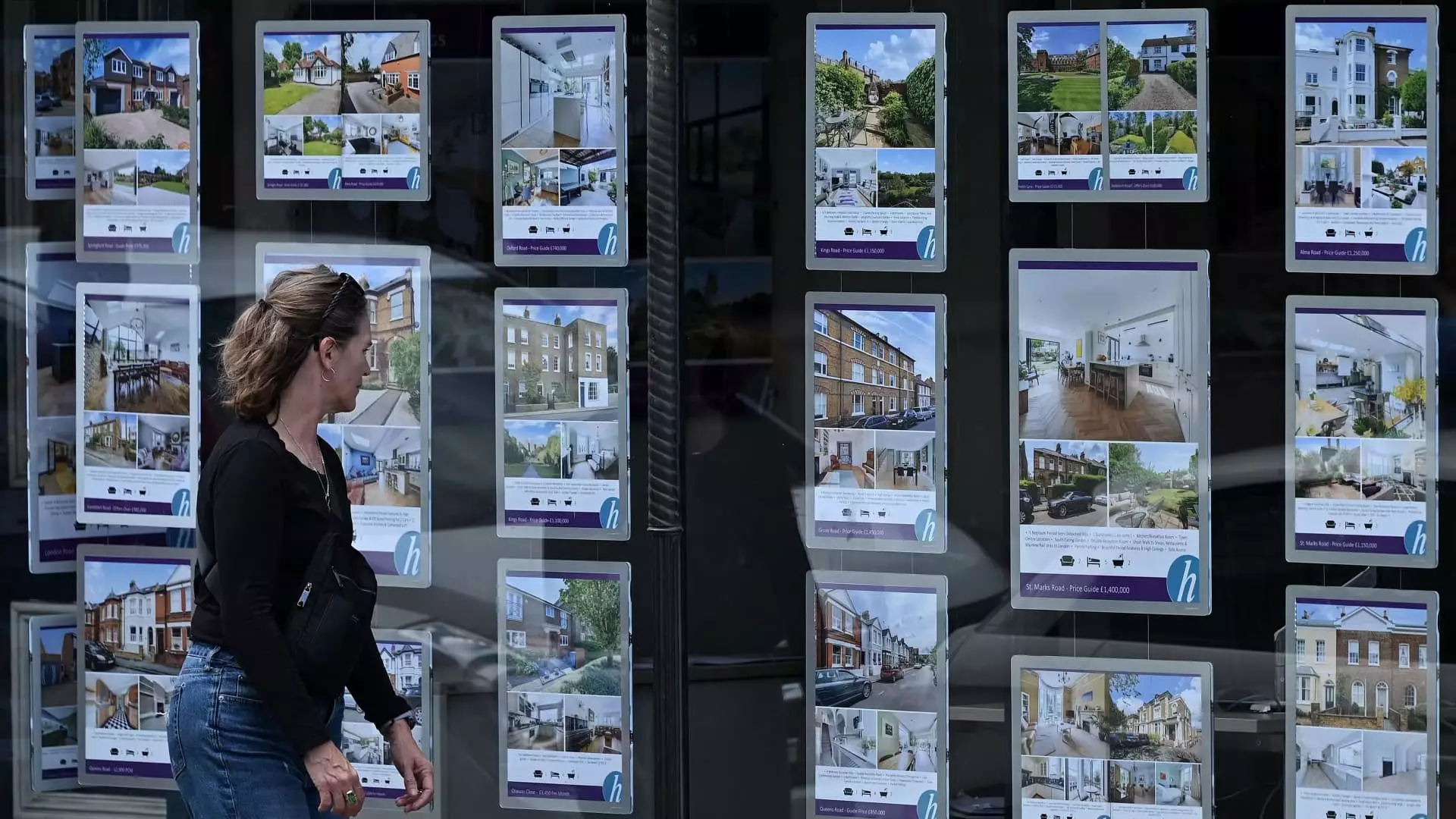Recent trends in the UK housing market indicate a noteworthy revival, driven primarily by lower mortgage rates. Following a year of uncertainty and stagnation, the data from the recent report by Zoopla suggests a significant turnaround. According to the research published on a Thursday, there was a remarkable 25% increase in agreed home sales year-on-year during the four weeks leading up to September 22. This marks the fastest growth rate witnessed since the spring of 2021, suggesting that many potential buyers, who had previously delayed their purchasing decisions, are now stepping back into the market.
This influx of home buyers is reinforced by a parallel increase in inquiries, which showed a staggering 26% rise annually during the same time frame. Such encouraging statistics underline a renewed optimism among households that had previously opted to remain on the sidelines. With interest rates on mortgages experiencing a downward trend, consumers might feel more empowered and motivated to make significant investments in property.
With the housing market showing signs of life, it’s not just prospective homeowners who are benefiting; publicly traded homebuilders are also experiencing positive financial ramifications. Shares of notable companies such as Taylor Wimpey and Barratt Developments surged by 1.4% following the favorable data release. As marketplace trends shift, this signals a growing confidence in the stability of the housing sector.
In September, house prices increase in the UK reached its highest rate in almost two years, with Nationwide reporting a 3.2% growth year-on-year—up from just 2.4% in August. This spike correlates closely with the recent reduction in borrowing costs initiated by the Bank of England (BoE). Current average mortgage rates for five-year fixed terms have plummeted to 4.57% from 5.53% the year prior, with some rates dipping as low as 3.7%. This trend enables a broader range of buyers to engage with the market, which is beneficial for an economy still recovering from the effects of prolonged high borrowing costs.
Market analysts are closely monitoring the upcoming Bank of England meeting scheduled for November 7. The decisions made could further influence borrowing costs, particularly in light of statements from Governor Andrew Bailey, who hinted at a potential “aggressive” approach to rate cuts if inflation metrics maintain a favorable trend. This forward-looking stance indicates that both buyers and investors are poised for possible shifts in financial policy that could make the housing market even more attractive.
Despite the upturn, the growth in house prices is uneven across regions. Northern Ireland and Scotland have reported the highest annual price increases of 8.6% and 4.3% respectively, while London continues to demonstrate resilience, albeit with a modest 2% growth. However, the contrast between the performance of urban apartment sales and suburban or countryside properties remains pronounced. The lasting effects of the pandemic have precipitated a “race for space,” where buyers increasingly prefer homes that offer more area, often leading to delayed sales in the apartment sector.
Nevertheless, challenges lurk around the corner. Increased market activity among landlords eager to divest buy-to-let properties prior to anticipated tax hikes outlined in the Labour government’s upcoming budget could lead to an uptick in supply. While this could create more options for buyers, it might also temper price growth—at least in the short term.
Concerns regarding the public finances have led Finance Minister Rachel Reeves to speculate on potential tax increases necessary to address a £22 billion deficit. While changes to income tax and VAT are off the table, considerations surrounding capital gains tax and inheritance tax—which directly relate to property transactions—remain viable. Additionally, ongoing discussions around non-domicile tax statuses are pushing wealthier individuals to contemplate leaving the British property market, potentially impacting luxury segments.
The UK housing market is navigating a period of significant transition. While the decrease in mortgage rates fosters renewed buying activity and invigorates the sector, various challenges, including political and economic factors, could redefine the landscape in the months ahead.

